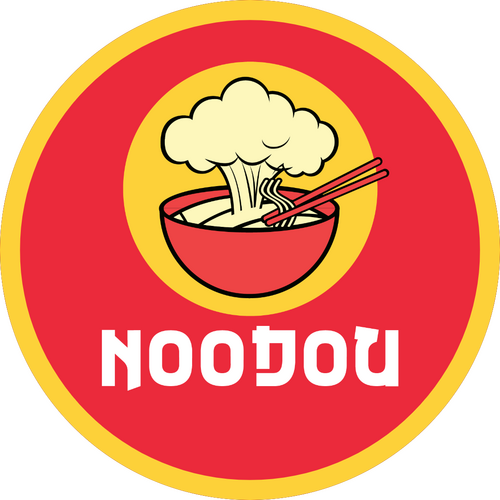'Joy' 2024 Ending Explained & Movie Recap: Why Does Jean Purdy Quit?
4 天前
Joy – The Birth of IVF falls under that particular category of movies that usually don’t work for me. They’re never really bad and always have a genuinely inspiring, heartwarming real-life story at the center, but most of them lack cinematic quality. It probably wouldn’t be wrong to call them ‘joyless’ even. But Ben Taylor’s IVF drama has turned out to be a rare exception. Even though the film follows that very familiar template, it works out wonderfully thanks to the writing, which is on point, and the cast—Thomasin McKenzie, James Norton, and the legendary Bill Nighy—which is absolutely perfect. The end result is quite a triumph, I would say. Let us take a closer look.
Spoilers Ahead
What happens in the movie?In the year 1969, young nurse Jean Purdy walks into biologist Bob Edwards’ lab in Cambridge to interview for a job. She doesn’t have to sweat much to get hired, as Bob is quickly impressed with her skill at catching lab rats. When Jean finds out about Bob’s dream of making babies outside of the usual process (for those who can’t have it), she is surprised but gets on board quickly. But to get things started, having an obstetrician is mandatory, which they find in Doctor Patrick Steptoe—a considerably older man who’s mostly hated by his peers due to being miles ahead of them in terms of expertise. As Patrick works at the Oldham hospital, they set up shop in Oldham, with the hope of getting funded eventually to move back to Cambridge along with the doctor.
Upon knowing what her daughter is doing, Jean’s god-fearing mother practically denounces her and also forbids her from coming to church. This understandably upsets Jean, but she holds her ground. One of the most interesting aspects of Joy has to be Jean’s faith and how she deals with it and evolves as a genuinely smart, very admirable person. She is a churchgoer initially, thanks to her mother, and quite obviously appalled to find out that Patrick also helps women in aborting unwanted pregnancies. Yet, she would not hesitate to argue with her mother for Patrick because she also understands that it is a totally legal thing. Her struggle with her faith makes her miserable during the early days of the IVF project, as she’s the one who’s shunned by everyone for what she is doing—something that both her colleagues, Patrick and Bob, also notice. But with time, Jean comes to the point of realization that there’s nothing to be miserable about with abortion. Her growing closeness to the women subjects of the experiment—a group that starts calling themselves ‘The Ovum Club’ as well as the Oldham hospital matron—has a lot to do with that.
Why does Jean quit?Even though all three, Jean, Bob, and Patrick, are equally important here, the film does appear to be Jean’s story at times. This seems like a conscious decision, and I really appreciate the director for doing this—more on that later. The IVF experiment has always been an unpredictable thing scientifically, but the team also faces a considerable amount of societal resistance. The scientific fraternity pretty much dismisses the idea (and Bob). The general public refuses to accept them, as to them it is against apparent normalcy and, more importantly, a sinful act against the will of God. We see both Bob and Jean producing logical arguments like infertility being a disease just like blindness and bad teeth, and God clearly having no issues with spectacles or false teeth, but obviously the common people are not to be reasoned with. You can’t possibly blame them, given Nobel Prize winner molecular biologist James Watson himself takes a firm stand against Bob as he is concerned about the abnormality of a baby if it comes through IVF. There’s a scene where Watson and Edwards debate, and the latter says every scientific breakthrough has risk involved, but the studio audience only gets further agitated.
For Jean, though, the blowback is more personal and severe. At least Bob and Patrick have the all-important family support, as their respective wives are very much backing them. But Jean has lost that, and her mother is so staunch in her beliefs that even after being diagnosed with cancer, she refuses to let Jean in until and unless she quits. Her romantic life also doesn’t go anywhere as she chooses to reject the proposal of Arun, a man from the Cambridge lab with whom she has a sexual relationship. It is quite clear that it is more than physical from both sides, and Arun is very much willing to go the whole nine yards, but Jean backs down as she can’t see herself in a conventional marriage. That, of course, has a lot to do with her suffering from endometriosis, which prevents her from having children. Keeping all this in mind, it’s only justified for Jean to have a full breakdown upon realizing that the reason they’re not succeeding is the accidental use of a toxic chemical. She has had enough of it, without having any success. And then she has a sick and very adamant mother to look after. So for Jean, quitting is not a matter of choice, as the situation demands her to do so. But with her gone, Bob and Patrick also decide to close things down. This is a clear indication of the fact that the whole thing couldn’t have worked without Jean Purdy.
Does the IVF experiment work?We already know the answer to the question, given we live in a world where IVF is a pretty normal thing. That said, “Joy” has a great final act where all the things finally start falling into place. Jean’s mother finally succumbs to the cancer, but before her death she practically ends up telling her daughter that she can’t accept her as a failure. Jean was always willing to get back into what she was doing, and this was all the reassurance she needed. Bob was also wasting his time in politics, and Patrick was in no mood for retirement. So the trio returns to Oldham, and soon, they have a new ‘Ovum Club.’ One Leslie Brown, who’s fortunate to have a very supportive husband, ultimately becomes the one who will eventually find a place in the history book—as the first mother with an IVF baby. Finally, on June 25th, of the year 1978, the first IVF baby, Louise Brown, was born—all healthy and fine. Her parents graciously offer Jean, Bob, and Patrick the opportunity to give her a middle name, and they come up with a very fitting choice—Joy.
The greatest thing about Joy is perhaps letting us know how difficult it was for Jean to get the credit that she always deserved, given she was a woman in an era that was not kind. It is even more tragic given she died of cancer in the year 1985. As the Nobel Prize is not given posthumously, she missed out on that as well. So did Patrick, who died in 1988. Bob Edwards won the Nobel in 2010 for pioneering IVF, but he kept campaigning for Jean to get her due credit for his entire lifetime. Today, all three of them are known as the people who changed the lives of countless people.
...Read the fullstory
It's better on the More. News app
✅ It’s fast
✅ It’s easy to use
✅ It’s free









